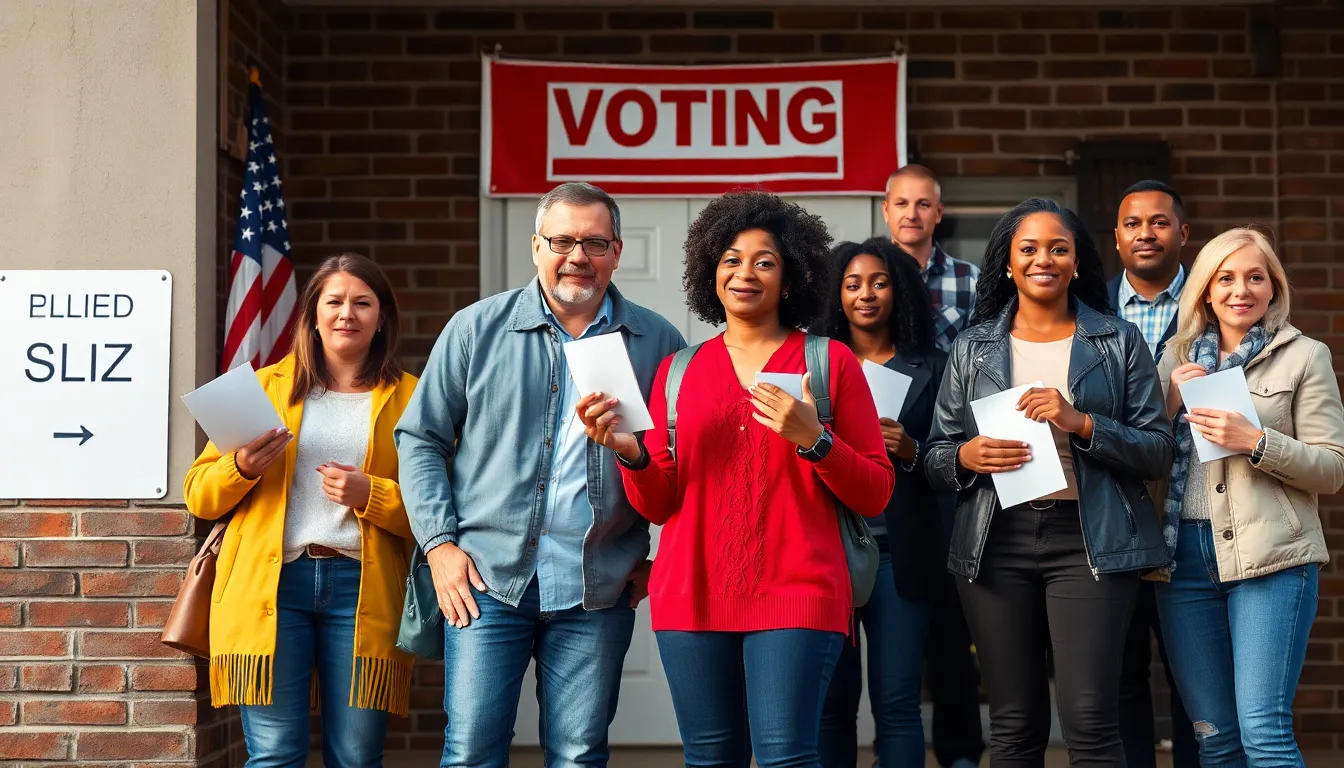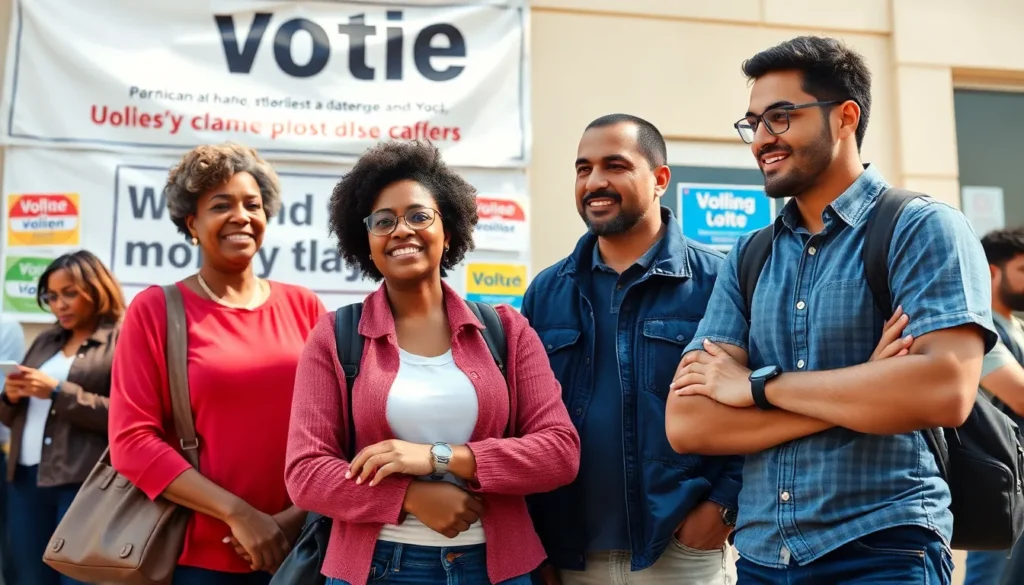Table of Contents
ToggleVoting sparks passionate debates about its nature: is it a duty or a responsibility? For many, the act of casting a ballot is seen as a fundamental right that empowers citizens to influence their government. Others argue that it goes beyond mere participation—it’s a moral obligation to engage in the democratic process and uphold civic values.
As societies evolve, the conversation around voting continues to gain momentum. Understanding whether voting is a duty or responsibility can shape how individuals perceive their role in democracy. This distinction not only influences voter turnout but also reflects the collective mindset towards civic engagement. Exploring this topic reveals deeper insights into the values that drive democratic participation and the implications for future generations.
Understanding Voting
Voting serves as a critical mechanism in a democratic society, enabling citizens to influence governance. Understanding its nature enhances perceptions of civic engagement. Many scholars categorize voting as a fundamental right, emphasizing its role in shaping laws and policies. This perspective asserts that exercising the right to vote empowers individuals to express their preferences for leadership and issues.
Conversely, some posit that voting embodies a moral obligation. This viewpoint highlights the duty to participate in democracy and actively contribute to societal development. Engaging in the voting process fosters collective decision-making and strengthens democratic values.
The distinctions between viewing voting as a right or a duty affect voter turnout. Higher participation rates often correlate with a sense of responsibility among citizens. When individuals recognize voting as essential to their civic identity, they are more likely to engage consistently.
Educational initiatives play a pivotal role in fostering a collective sense of responsibility. Informing citizens about the voting process, candidates, and issues can motivate them to participate. Increased awareness may lead to higher voter engagement, which enhances the democratic process.
Ultimately, perspectives on voting shape individual actions within the electoral system. Understanding these varied viewpoints informs strategies to bolster civic participation and promote a healthier democracy.
The Concept of Duty

The concept of duty in relation to voting encompasses historical perspectives and modern implications that shape citizen engagement in democratic processes.
Historical Context
Historically, voting emerged as a privilege for limited societal groups, evolving into a universal right. The suffrage movements of the 19th and 20th centuries exemplified the struggle for voting rights, emphasizing the duty of citizens to advocate for representation and equality. As civil rights activists fought against disenfranchisement, they asserted that participation in elections constituted a moral obligation. The expansion of voting rights throughout different societies highlighted the evolving understanding of voting as a civic duty, stressing its role in shaping governance and societal norms.
Modern Implications
In contemporary society, the perception of voting as a duty influences voter turnout and civic engagement levels. Citizens often feel a greater sense of responsibility to participate when discussions of democratic values arise. Increased educational initiatives and awareness campaigns aim to inform individuals about the significance of their votes. The shift toward recognizing voting as a duty reinforces collective accountability, encouraging citizens to engage actively in the political process. As social movements and issues emerge, the duty to vote evolves alongside societal needs, making it essential for individuals to participate in shaping their governance.
The Concept of Responsibility
Understanding voting as a responsibility crucially influences civic engagement and societal dynamics. This perspective encourages individuals to recognize their role in shaping democracy through participation.
Civic Engagement
Civic engagement encompasses the ways individuals participate in their communities and influence governance. Recognizing voting as a responsibility motivates citizens to engage actively in the political process. When individuals view their vote as a means to impact decision-making, they often seek to understand candidates, policies, and issues. Research shows that communities with higher voter participation experience enhanced civic engagement, greater public discourse, and increased accountability from elected officials. Educational initiatives that emphasize civic responsibility nurture informed citizens who take active roles in their democracy.
Impact on Society
Voting as a responsibility directly influences societal development and progress. High voter turnout signals a population’s commitment to democratic values and active participation in governance. Studies indicate that when citizens engage in elections, social issues receive more attention, potentially leading to meaningful changes in policies that affect communities. Furthermore, a culture of responsibility surrounding voting fosters a sense of belonging and shared purpose among citizens. This collective responsibility helps cultivate a robust democracy where diverse perspectives contribute to the policy-making process, ultimately benefiting society as a whole.
Arguments For Voting As A Duty
Voting as a duty emphasizes the moral and ethical obligations citizens hold within a democracy. This viewpoint encourages active participation, promoting stronger governance and societal progress.
Ethical Considerations
Ethical considerations surrounding voting underscore the notion that citizens possess a responsibility to participate in the democratic process. Engaging in voting reflects a commitment to civic values and social justice. By casting votes, individuals honor the sacrifices made by previous generations who fought for suffrage and equal representation. This sense of duty fosters civic pride, encouraging citizens to advocate for their communities’ needs and interests. Ethical frameworks often highlight that when individuals exercise their right to vote, they contribute to the collective well-being of society, paving the way for more equitable policies and governance.
Legal Perspectives
Legal perspectives on voting as a duty often center on the principles embedded in democratic constitutions. Many states view participation in elections as a civic obligation, aiming to enhance societal representation and accountability. Laws in various jurisdictions may enforce penalties for non-participation, emphasizing the expectation for civic engagement. Furthermore, legal mandates like voter registration initiatives aim to facilitate participation and reinforce the idea that voting correlates with citizenship responsibilities. These frameworks underpin the belief that when citizens fulfill their duty to vote, they help maintain the integrity of democratic processes and uphold the rule of law.
Arguments For Voting As A Responsibility
Voting as a responsibility highlights the social and personal dimensions of participation in democracy. Engaging in the electoral process fosters a sense of duty to one’s community and empowers individuals to influence societal change.
Social Obligations
Voting embodies social obligations that link citizens to their communities. Engaging in elections allows individuals to advocate for local issues and represent the interests of various demographic groups. Citizens affect change when they participate in shaping policies that address education, healthcare, and public safety. High voter turnout correlates with greater community cohesion and collective progress. Communities with responsible voting habits often experience improved local governance, as elected officials remain accountable to engaged constituents. Strong civic responsibilities encourage dialogue on pressing issues, leading to informed decision-making that reflects diverse perspectives.
Personal Empowerment
Voting empowers individuals to exercise their voice and play an active role in shaping their government. Civic participation instills a sense of ownership over local and national issues. Each vote serves as a tool for expression, where citizens can align candidates and policies with their values and beliefs. Empowerment through voting encourages individuals to educate themselves about political systems, candidates, and policies, driving informed engagement. Studies indicate that individuals who view voting as a responsibility often become more involved in other civic activities, such as community volunteering and political activism. This engagement fosters leadership skills and enhances critical thinking, incentivizing active citizenship.
Voting plays a pivotal role in shaping democracy and influencing governance. Whether viewed as a duty or a responsibility, the act of voting empowers individuals to make their voices heard. This engagement not only impacts electoral outcomes but also strengthens community ties and promotes civic values.
Encouraging a culture of responsibility around voting can lead to higher participation rates and a more informed electorate. As citizens recognize their role in democracy, they contribute to a more vibrant and accountable society. Ultimately, embracing the significance of voting fosters a sense of ownership and commitment to the values that underpin democratic processes.







